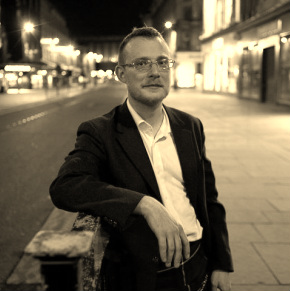Professor Ben Colburn "stretched to think critically"
Ben was an extraordinary Post 16 student. He is now an influential university lecturer whose interests include political philosophy and ethics, with a particular interest in the nature and value of autonomy. He is currently writing on various topics in this area, including the nature of responsibility and its role in distributive justice; the moral foundations of the free market; and the conditions of independence and authenticity. When possible, he also thinks about the philosophy of mathematics, and about the political theory of education. Here he reflects on the culture of learning at Tallis and what makes the school and its Post 16 Centre so special:
|
Since leaving, I’ve reflected a lot on what makes Thomas Tallis a great school. I’ve come to think that it’s not just the high quality of the teaching itself, though that’s important. Rather, it seems to me that the virtue in respect of which Tallis is distinctive is its culture: a general celebration of individuality, which amongst other things nurtures a certain sort of maverick streak in its staff. Most of my teachers (especially in the sixth form) were passionate, knowledgeable and brilliant. In addition, many of them were also prepared to take a critical stance towards educational orthodoxy, or indeed to ignore it entirely, if their professional judgement pointed them in that direction. This meant doing some fascinating and rewarding things which I would otherwise have missed out on: at the time, I didn’t realise how unusual it was to spend entire physics lessons talking about falsificationism in the methodology of science, or arguing about free speech and Holocaust-denial in history, or spending two hours every week luxuriously inching our way through Hamlet discussing every word along the way.
It also meant constantly being stretched to think critically, not just about the subject matter at hand, but also about the process of learning and thinking itself. Creating space for that sort of thing is hard, given the internal and external pressures that schools face. But it’s also tremendously valuable: one of the main things that distinguishes true education from the mere delivery of a generic curriculum. |

